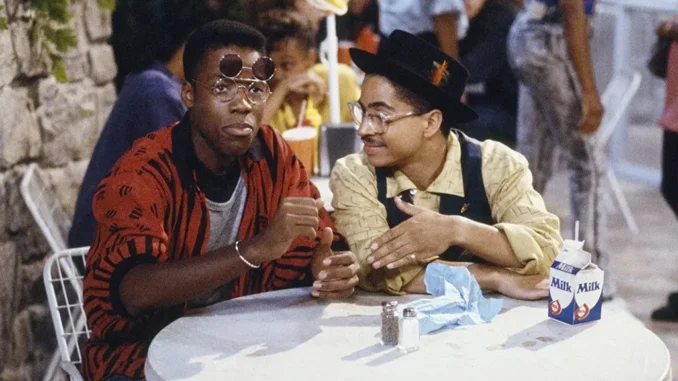
For many, “The Cosby Show” has become unwatchable since the dozens of sexual assault allegations against Bill Cosby entered the media spotlight.
Some networks, such as TV Land, have pulled the show from their lineups. (Others, like Bounce TV, initially did the same, only to resume airing reruns up until the verdict came in this year. It remains available to stream on Amazon Prime Video.) But “A Different World,” the popular “Cosby” spinoff that ended its original run 25 years ago this week, doesn’t seem to have inspired the same amount of hand-wringing as its predecessor.
Among the many pieces that have been written about Mr. Cosby’s legacy and how we square it with the man himself, few pay much attention to “A Different World,” which he created. And articles about the sitcom — including a spate of them last fall around another milestone, the 30th anniversary of its September 1987 premiere — tend to mostly leave Mr. Cosby’s transgressions out of it. When the “black-ish” creator Kenya Barris added “grown-ish” earlier this year, he openly cited “A Different World” as an influence and expressed hope that his own show could have a similar cultural impact.

Some of the reasons for this continued affection are obvious. While Mr. Cosby’s name appears in the credits for each episode, he only appeared on screen in three of them, all in Season 1. And after that season, which centered on Denise Huxtable’s (Lisa Bonet) transition to university life at the fictional Hillman College, the series was completely revamped.
The result of — and possibly a motivation for — this separating of art from artist allows the show to be a repository for the tender sentiments that have been displaced by the retroactive tarnishing of “The Cosby Show.”
As someone who grew up watching and enjoying both shows (though I was too young to remember their original runs), I can relate to this. I haven’t wanted to revisit the Huxtable family since Hannibal Buress’s scathing onstage condemnation of Mr. Cosby in 2014 that encouraged more women to come forward and accuse Mr. Cosby of sexual assault. But I did binge all six seasons of “A Different World” a couple of summers ago when it finally landed on Netflix. (It’s now on Amazon.) While I’d rather not again see the Huxtables lip sync to Ray Charles’s “Night Time Is the Right Time” or Claire cut down her children’s dumb retorts with aplomb, I can at least give myself Whitley, Dwayne, Freddie and Kim.
It helps that “A Different World” was a more challenging, and arguably more meaningful show. When Debbie Allen took over as producer and director in Season 2, she famously made it her mission to set it apart from its more benign predecessor by having the writers tackle more substantive issues, including colorism within the black community, AIDS and shopping while black.
Last year, Brittany Brathwaite wrote for The Root about how the show was ahead of its time.
In a recent phone conversation, she told me that because of the creative risks it took, she has “seriously severed Bill Cosby from ‘A Different World.’”
